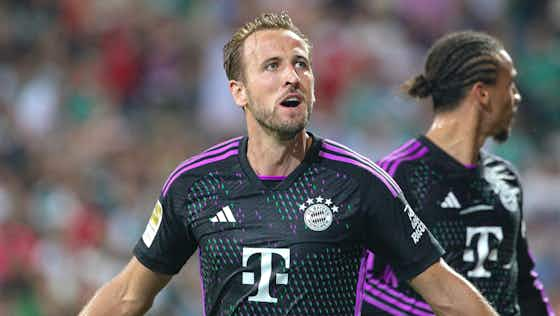EPL Index
·18 January 2024
Levy’s Financial Foresight Shaping Tottenham’s Future

In partnership with
Yahoo sportsEPL Index
·18 January 2024

In the ever-competitive landscape of Premier League football, Tottenham Hotspur’s approach under the stewardship of Daniel Levy is increasingly coming into focus as a model of financial prudence and strategic foresight, while some supporters may still harbor frustrations, there’s a growing sense that Levy’s long-term strategy might be about to bear significant fruit, especially under the guidance of Ange Postecoglou.
At the heart of the matter is Levy’s commitment to financial sustainability. While other clubs face the scrutiny of breaching the Premier League’s profit and sustainability rules (PSR), Tottenham stands out as a beacon of fiscal responsibility. The club’s healthy financial results and adherence to PSR are a testament to years of careful financial planning and astute decision-making. The sale of Harry Kane to Bayern Munich for £100 million last summer was not just a transfer; it was a strategic maneuver, bolstering Tottenham’s already strong financial position.

Photo: IMAGO
Levy’s cautious approach to spending has often been a source of frustration for the Spurs faithful, yearning for big-name signings and silverware. Yet, this window has seen Tottenham emerge as the only top-flight club to have made a significant investment – £26 million on defender Radu Dragusin. More importantly, their wage bill stands as a model of efficiency, being less than half of their revenue, a rarity in the lavish Premier League.

Levy’s stance on financial controls in football is no secret. His advocacy for spending controls and financial sustainability was highlighted when Manchester City faced charges for historic financial irregularities. Pep Guardiola’s remarks pointed to Levy as a proponent of stricter financial regulations, a position that aligns with Tottenham’s philosophy and safeguards their financial integrity.
Tottenham’s financial health now gives them leverage in the transfer market, a stark contrast to some of their Premier League counterparts. The club is strategically targeting players from clubs under financial pressure, like Richarlison from Everton and Brennan Johnson from Nottingham Forest. This approach not only allows Spurs to find value in an inflated market but also ensures compliance with financial fair play regulations.
Critics may argue that PSR benefits the established top clubs and stifles ambition, but Tottenham’s rise to this position has been a journey of prudent expenditure and strategic planning. Levy’s model has positioned Spurs in a place where they are clear of sanctions and can afford to spend ambitiously.
In conclusion, Daniel Levy’s long game at Tottenham is a blend of fiscal restraint and strategic investment. While the lack of silverware remains a point of contention, the club’s financial health and ability to navigate the transfer market without fear of sanctions underscore the effectiveness of Levy’s approach. As Tottenham looks forward to spending ambitiously under Ange Postecoglou, the Levy model might just be setting a new benchmark in the world of football finance.






























































